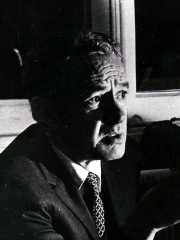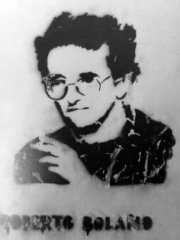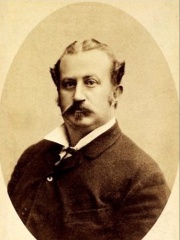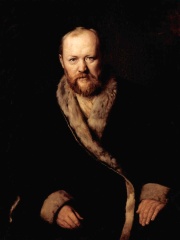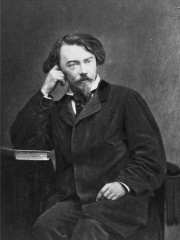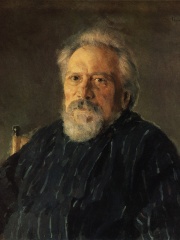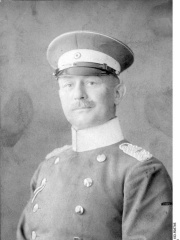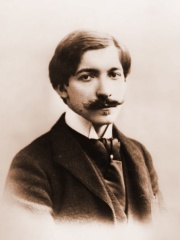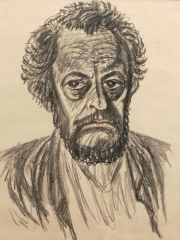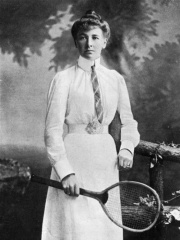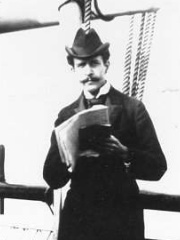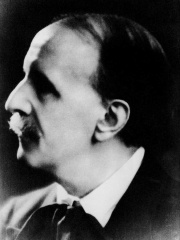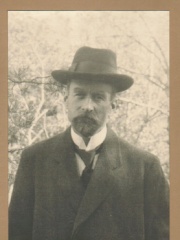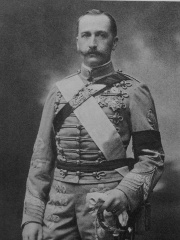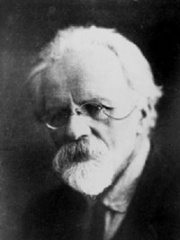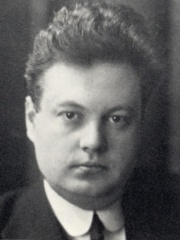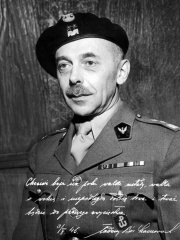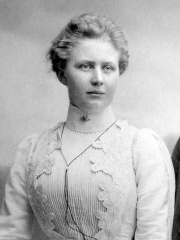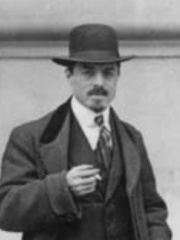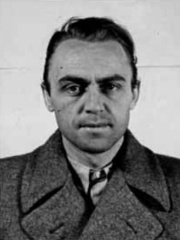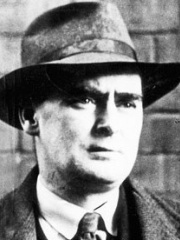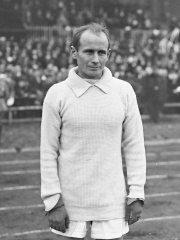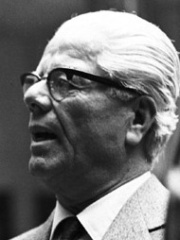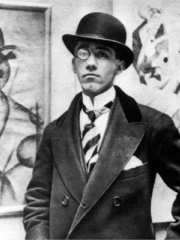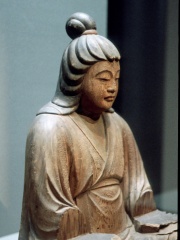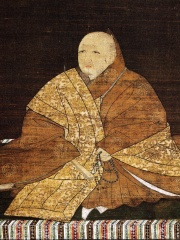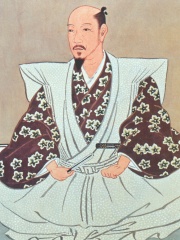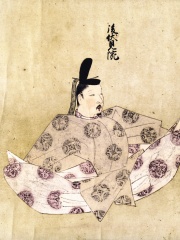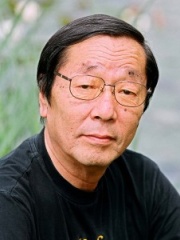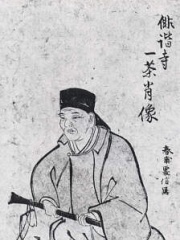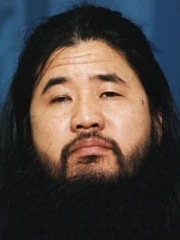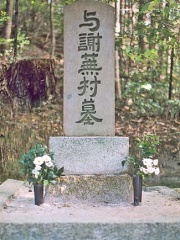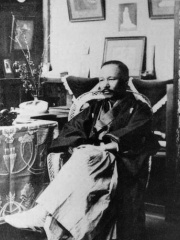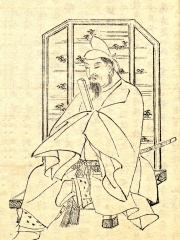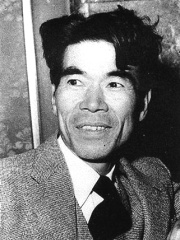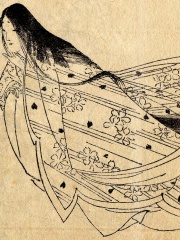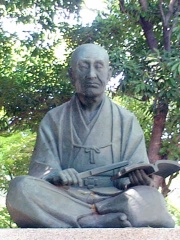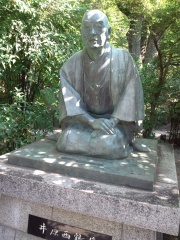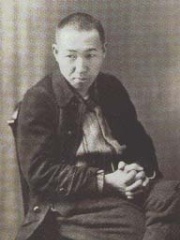WRITER
D. T. Suzuki
1870 - 1966
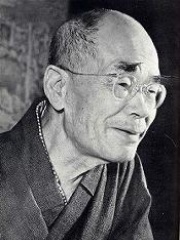
 D. T. Suzuki
D. T. Suzuki
Daisetsu Teitaro Suzuki (鈴木 大拙 貞太郎, Suzuki Daisetsu Teitarō; 18 October 1870 – 12 July 1966), self-rendered in 1894 as Daisetz, was a Japanese essayist, philosopher, religious scholar, and translator. He was an authority on Buddhism, especially Zen and Shin, and was instrumental in spreading interest in these (and in Far Eastern philosophy in general) to the West. He was also a prolific translator of Chinese, Korean, Japanese, Vietnamese and Sanskrit literature. Suzuki spent several lengthy stretches teaching or lecturing at Western universities and devoted many years to a professorship at Ōtani University, a Japanese university of the Ōtani School of Jōdo Shinshū. Read more on Wikipedia
His biography is available in 34 different languages on Wikipedia. D. T. Suzuki is the 1,110th most popular writer (down from 1,039th in 2024), the 265th most popular biography from Japan (down from 214th in 2019) and the 21st most popular Japanese Writer.
D.T. Suzuki is most famous for his translations of Buddhist texts and his interpretations of Zen Buddhism.
Memorability Metrics
Page views of D. T. Suzuki by language
Among WRITERS
Among writers, D. T. Suzuki ranks 1,110 out of 7,302. Before him are Juan Rulfo, Roberto Bolaño, Publilius Syrus, Roger Zelazny, Alexander Kielland, and Alexander Ostrovsky. After him are Herodian, Quintus Tullius Cicero, Auguste Villiers de l'Isle-Adam, Len Deighton, Nikolai Leskov, and Jeff Lindsay.
Most Popular Writers in Wikipedia
Go to all RankingsJuan Rulfo
1917 - 1986
HPI: 67.52
Rank: 1,104
Roberto Bolaño
1953 - 2003
HPI: 67.50
Rank: 1,105
Publilius Syrus
100 BC - 100 BC
HPI: 67.47
Rank: 1,106
Roger Zelazny
1937 - 1995
HPI: 67.47
Rank: 1,107
Alexander Kielland
1849 - 1906
HPI: 67.46
Rank: 1,108
Alexander Ostrovsky
1823 - 1886
HPI: 67.46
Rank: 1,109
D. T. Suzuki
1870 - 1966
HPI: 67.46
Rank: 1,110
Herodian
170 - 250
HPI: 67.46
Rank: 1,111
Quintus Tullius Cicero
102 BC - 43 BC
HPI: 67.45
Rank: 1,112
Auguste Villiers de l'Isle-Adam
1838 - 1889
HPI: 67.45
Rank: 1,113
Len Deighton
1929 - Present
HPI: 67.44
Rank: 1,114
Nikolai Leskov
1831 - 1895
HPI: 67.44
Rank: 1,115
Jeff Lindsay
1952 - Present
HPI: 67.42
Rank: 1,116
Contemporaries
Among people born in 1870, D. T. Suzuki ranks 34. Before him are Georgy Gapon, Paul von Lettow-Vorbeck, Major Ritchie, Pierre Louÿs, Ernst Barlach, and Reginald Lee. After him are Charlotte Cooper, E. M. Antoniadi, Louis Vierne, Helge von Koch, Prince Carlos of Bourbon-Two Sicilies, and Ilya Ivanovich Ivanov. Among people deceased in 1966, D. T. Suzuki ranks 37. Before him are Rolf Maximilian Sievert, Tadeusz Bór-Komorowski, Elizabeth Christ Trump, Carlo Carrà, Alfred Naujocks, and Brian O'Nolan. After him are Alexander von Falkenhausen, Charlotte Cooper, Hannes Kolehmainen, Battista Farina, Gino Severini, and Herbert Gille.
Others Born in 1870
Go to all RankingsGeorgy Gapon
SOCIAL ACTIVIST
1870 - 1906
HPI: 68.51
Rank: 28
Paul von Lettow-Vorbeck
MILITARY PERSONNEL
1870 - 1964
HPI: 68.51
Rank: 29
Major Ritchie
TENNIS PLAYER
1870 - 1955
HPI: 67.76
Rank: 30
Pierre Louÿs
WRITER
1870 - 1925
HPI: 67.63
Rank: 31
Ernst Barlach
WRITER
1870 - 1938
HPI: 67.59
Rank: 32
Reginald Lee
RELIGIOUS FIGURE
1870 - 1913
HPI: 67.54
Rank: 33
D. T. Suzuki
WRITER
1870 - 1966
HPI: 67.46
Rank: 34
Charlotte Cooper
TENNIS PLAYER
1870 - 1966
HPI: 67.28
Rank: 35
E. M. Antoniadi
ASTRONOMER
1870 - 1944
HPI: 67.17
Rank: 36
Louis Vierne
MUSICIAN
1870 - 1937
HPI: 66.86
Rank: 37
Helge von Koch
MATHEMATICIAN
1870 - 1924
HPI: 66.71
Rank: 38
Prince Carlos of Bourbon-Two Sicilies
POLITICIAN
1870 - 1949
HPI: 66.49
Rank: 39
Ilya Ivanovich Ivanov
BIOLOGIST
1870 - 1932
HPI: 66.26
Rank: 40
Others Deceased in 1966
Go to all RankingsRolf Maximilian Sievert
PHYSICIST
1896 - 1966
HPI: 68.34
Rank: 31
Tadeusz Bór-Komorowski
MILITARY PERSONNEL
1895 - 1966
HPI: 68.32
Rank: 32
Elizabeth Christ Trump
BUSINESSPERSON
1880 - 1966
HPI: 68.14
Rank: 33
Carlo Carrà
PAINTER
1881 - 1966
HPI: 67.98
Rank: 34
Alfred Naujocks
SOCIAL ACTIVIST
1911 - 1966
HPI: 67.74
Rank: 35
Brian O'Nolan
WRITER
1911 - 1966
HPI: 67.71
Rank: 36
D. T. Suzuki
WRITER
1870 - 1966
HPI: 67.46
Rank: 37
Alexander von Falkenhausen
MILITARY PERSONNEL
1878 - 1966
HPI: 67.28
Rank: 38
Charlotte Cooper
TENNIS PLAYER
1870 - 1966
HPI: 67.28
Rank: 39
Hannes Kolehmainen
ATHLETE
1889 - 1966
HPI: 67.23
Rank: 40
Battista Farina
DESIGNER
1893 - 1966
HPI: 67.17
Rank: 41
Gino Severini
PAINTER
1883 - 1966
HPI: 67.09
Rank: 42
Herbert Gille
MILITARY PERSONNEL
1897 - 1966
HPI: 67.02
Rank: 43
In Japan
Among people born in Japan, D. T. Suzuki ranks 265 out of 6,245. Before him are Masahiro Hamazaki (1940), Empress Jingū (169), Ashikaga Yoshimitsu (1358), Setsu Sawagata (null), Ichirou Mizuki (1948), and Kenzo Ohashi (1934). After him are Katō Kiyomasa (1561), Eizo Yuguchi (1945), Masanori Tokita (1925), Shumpei Inoue (null), Kikuzo Kisaka (null), and Emperor Go-Fushimi (1288).
Others born in Japan
Go to all RankingsMasahiro Hamazaki
SOCCER PLAYER
1940 - 2011
HPI: 67.51
Rank: 259
Empress Jingū
POLITICIAN
169 - 269
HPI: 67.51
Rank: 260
Ashikaga Yoshimitsu
POLITICIAN
1358 - 1408
HPI: 67.50
Rank: 261
Setsu Sawagata
SOCCER PLAYER
HPI: 67.49
Rank: 262
Ichirou Mizuki
COMPOSER
1948 - 2022
HPI: 67.48
Rank: 263
Kenzo Ohashi
SOCCER PLAYER
1934 - 2015
HPI: 67.47
Rank: 264
D. T. Suzuki
WRITER
1870 - 1966
HPI: 67.46
Rank: 265
Katō Kiyomasa
POLITICIAN
1561 - 1611
HPI: 67.45
Rank: 266
Eizo Yuguchi
SOCCER PLAYER
1945 - 2003
HPI: 67.43
Rank: 267
Masanori Tokita
SOCCER PLAYER
1925 - 2004
HPI: 67.42
Rank: 268
Shumpei Inoue
SOCCER PLAYER
HPI: 67.42
Rank: 269
Kikuzo Kisaka
SOCCER PLAYER
HPI: 67.39
Rank: 270
Emperor Go-Fushimi
POLITICIAN
1288 - 1336
HPI: 67.39
Rank: 271
Among WRITERS In Japan
Among writers born in Japan, D. T. Suzuki ranks 21. Before him are Zeami Motokiyo (1363), Masaru Emoto (1943), Kobayashi Issa (1763), Shoko Asahara (1955), Yosa Buson (1716), and Mori Ōgai (1862). After him are Sugawara no Michizane (845), Eiji Yoshikawa (1892), Ono no Komachi (825), Chikamatsu Monzaemon (1653), Ihara Saikaku (1642), and Kenji Miyazawa (1896).
Zeami Motokiyo
1363 - 1443
HPI: 69.44
Rank: 15
Masaru Emoto
1943 - 2014
HPI: 69.41
Rank: 16
Kobayashi Issa
1763 - 1828
HPI: 69.29
Rank: 17
Shoko Asahara
1955 - 2018
HPI: 68.89
Rank: 18
Yosa Buson
1716 - 1783
HPI: 68.07
Rank: 19
Mori Ōgai
1862 - 1922
HPI: 67.53
Rank: 20
D. T. Suzuki
1870 - 1966
HPI: 67.46
Rank: 21
Sugawara no Michizane
845 - 903
HPI: 67.34
Rank: 22
Eiji Yoshikawa
1892 - 1962
HPI: 66.54
Rank: 23
Ono no Komachi
825 - 900
HPI: 66.45
Rank: 24
Chikamatsu Monzaemon
1653 - 1725
HPI: 66.03
Rank: 25
Ihara Saikaku
1642 - 1693
HPI: 65.72
Rank: 26
Kenji Miyazawa
1896 - 1933
HPI: 65.58
Rank: 27
